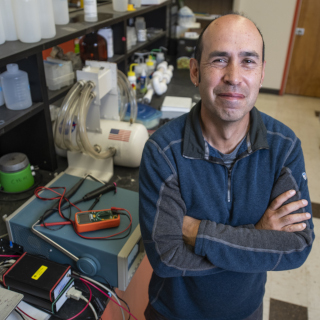Sloan Scholars Program
The Sloan Indigenous Graduate Partnership
The UM Sloan Indigenous Graduate Partnership (UM SIGP) was established in the fall of 2005. Indigenous (Native American, Alaskan Native, Native Hawaiian) graduate students pursuing degrees in STEM at The University of Montana are eligible to apply for the scholarship program established by the A.P. Sloan Foundation. The UM SIGP Program is intended to increase the number of Indigenous Americans earning master’s and doctoral degrees in STEM disciplines.
The UM SIGP program provides supplemental funding to selected graduate students on a competitive basis. The amount for master’s level students is up to $20,000 and doctoral students are awarded up to $40,000 for their program. In addition to the supplemental funding, students may be offered tuition waivers, faculty mentoring, professional development, and academic support services through Indigenous Research and STEM Education and The University of Montana Graduate School.
If you are an Indigenous American who is interested in a graduate degree in science, technology, engineering or mathematics (STEM), we are very interested in talking with you. We believe you will see that the UM SIGP program can offer you a unique opportunity to earn your graduate degree. Not only will you be given the opportunity for financial support, you will also have access to top faculty here on campus and the chance to connect with other Indigenous Americans pursuing graduate degrees.
UM SIGP Eligibility Criteria
A scholarship applicant must be accepted into a qualifying science, technology, engineering, or mathematics (STEM) program at UM. A primary research advisor must be identified, and each UM SIGP applicant must have a teaching assistantship (TA) or research assistantship (RA) as defined by the UM TA/RA policy.
Explanation or evidence of indigenous affiliation (U.S. citizenship) required.
SIGP Application:
Please call Dr. Thomas at 243-2052 for application information.
Current Sloan Scholars:
Sierra Paske
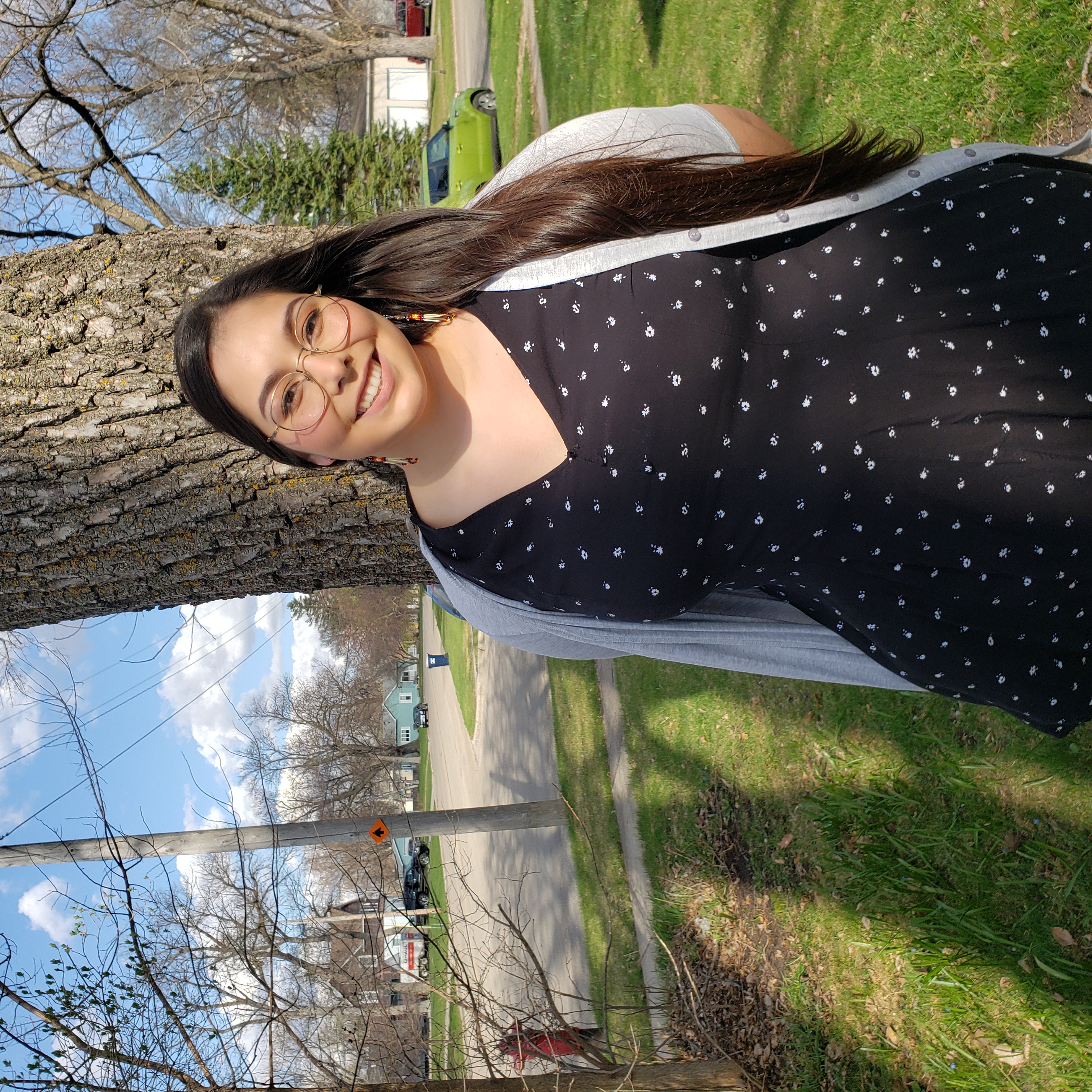
Haŋ mitákuyapi. Čhaŋté waštéya napé čhiyúzapi. Wašiču iá Sierra Paske emákiyapi ye. Lakota iá woowot́aŋla wóglaka wiyaŋ. My name is Sierra Paske. My Lakota name is Speaks the Truth Woman. I am Ȟunkpapa Lakota and enrolled in the Standing Rock Lakota Sioux tribe. I am attending the University of Montana and am a first-year graduate student in the Chemistry Ph.D. program. My favorite quarantine hobby has been beading, and also a lot of writing for fun.
Nicole Benally
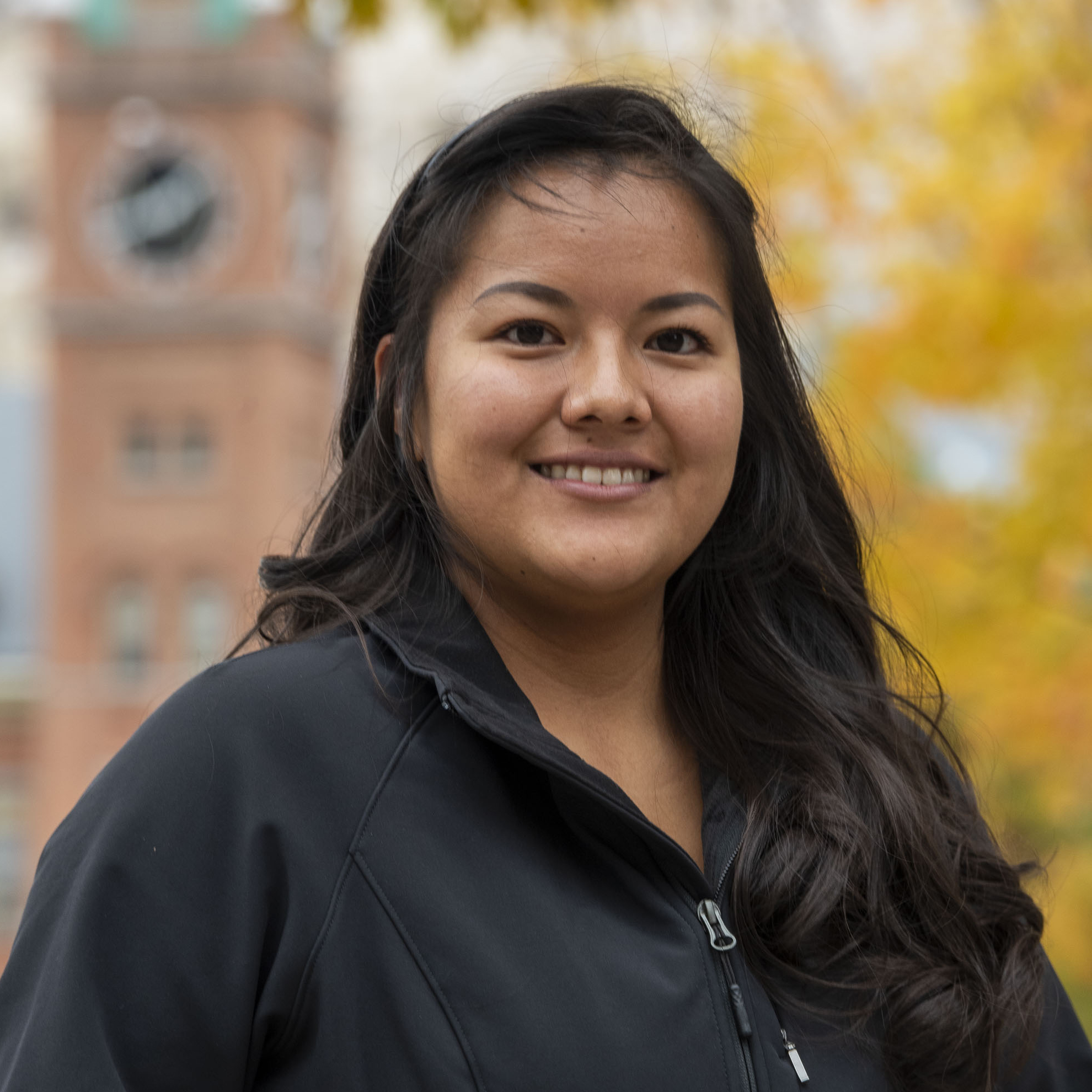
Ya’at’eeh (“Hello” in the Navajo Language)! My name is Nicole Ashtin Benally. I am Black Streak Wood born for the Coyote Pass Clan. My grandparents are from the Bitter Water and Red Running into Water Clans. I was born and raised on the Navajo Reservation in Ganado, Arizona. I received my B.S. in Agriculture majoring in Soil Science from New Mexico State University (NMSU) and my M.S. in Agronomy from Purdue University. In my journey through college, I found my passion and purpose through agriculture and becoming a mentor to youth. My career goal is to help tribal communities through agriculture, i.e. food sovereignty, where I can develop, initiate, and maintain agricultural programs with the integration of cultural and contemporary knowledge. I previously served as the Tribal Agriculture and 4-H Extension Agent for the Eastern Navajo Nation with NMSU. Now I am currently attending University of Montana as a Ph.D. student within the Forestry and Conservation Program with my intension to study Tribal Food Sovereignty.
Daniel Bird
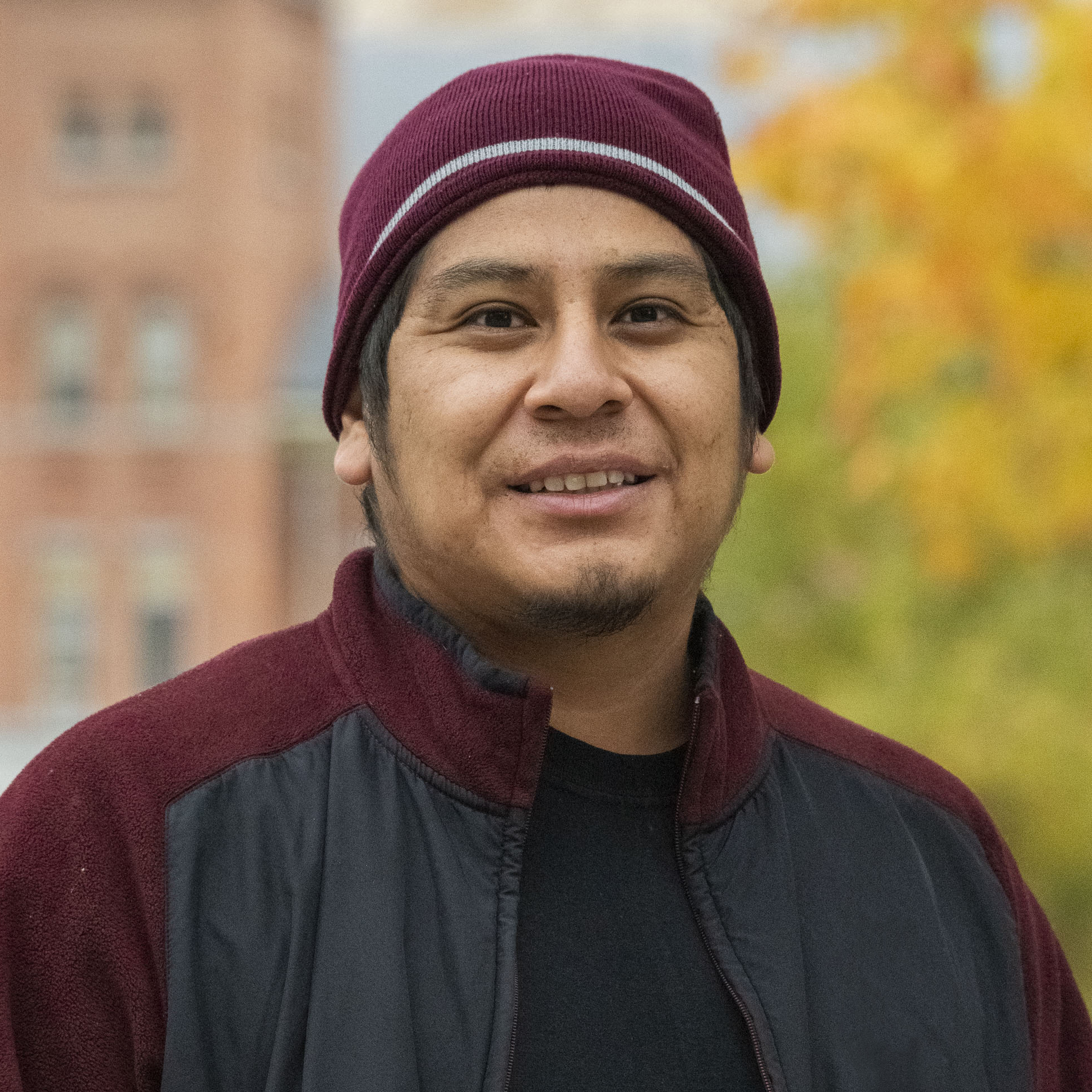
Daniel was born in Santa Fe, NM and raised on the Santo Domingo Pueblo. He grew up farming, ranching, hunting and living the pueblo lifestyle like many of his peers. Daniel is motivated by his family, community and friends. He hopes to increase tribal representation in STEM.
Cierra Keith
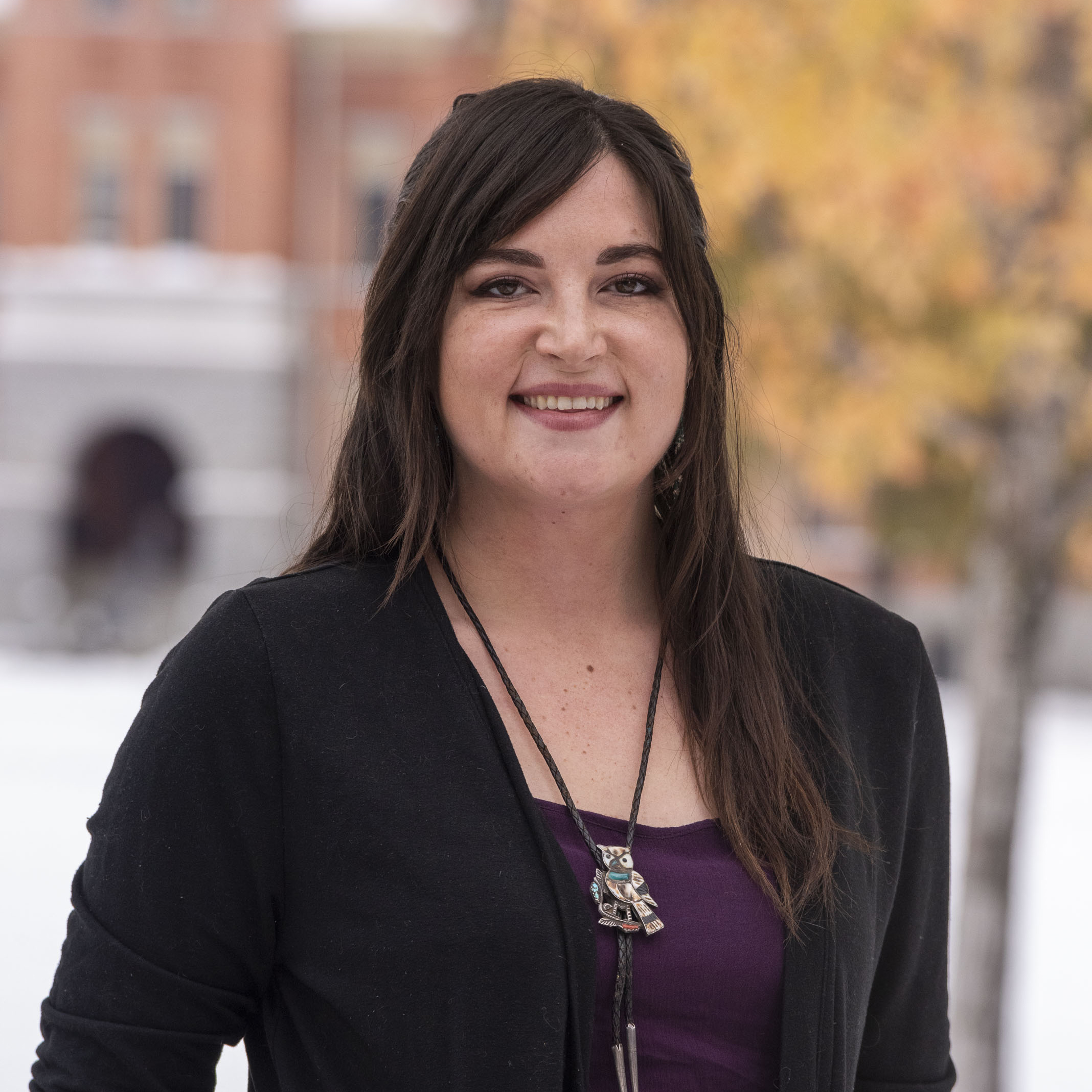
Cierra Keith is a proud member of the Cherokee Nation and descendent of the Creek Nation. She was born and raised in Oklahoma City, Oklahoma and spent her summers in Minnesota with her father. She graduated Magna Cum Laude from Oklahoma State University with a Bachelors of Science degree in Natural Resource Ecology and Management with a specialization in Natural History and Conservation and a minor in Wildlife Ecology.
Presently, Cierra is a graduate student at the University of Montana (UM) where she is pursuing a Master’s of Science degree in the Wildlife Biology department. As a UM Bridges Fellow and Sloan Scholar, hr interests lie broadly in community ecology, specifically in linkages between aquatic and terrestrial systems in riparian habitats. To investigate these linkages, she is studying the foraging response of bats to beaver activity in the Northern Great Plains of eastern Montana, which is located on historic Blackfoot and Assiniboine tribal land.
She hopes to work with tribal nations on restoration and conservation projects. She sees herself thriving as a Restoration Ecologist, Conservation Biologist, or Wildlife Biologist.
Her hobbies outside of schoolwork include birding, plant walks, making plant medicines, camping, baking, and reading. While she loves Missoula dearly, she also really enjoys spending time with her husband and her cats on the prairie in Eastern Montana.
Sattie Fisher
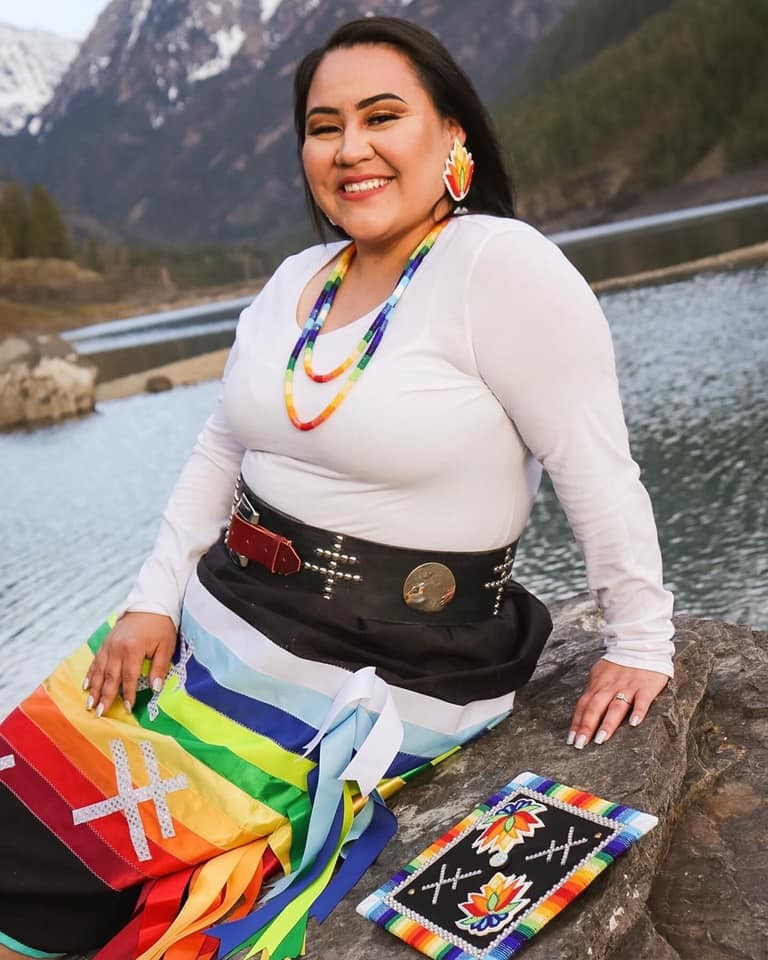
My name is Sattie Whitefoot-Fisher. I am originally from Yakima Washington and I am an enrolled member of the Confederated bands and tribes of the Yakama Nation. I am currently attending The University of Montana and I am enrolled in the Wildlife Biology Masters program. A software that has my made my studies easier is Zoom. I can meet with people in different cities, towns, or states. I have found it extremely helpful to stay connected during this trying time. My favorite quarantine hobby is currently, laying in bed watching Netflix while eating snacks.
Sarah Twoteeth

Sarah is a member of the Confederated Salish & Kootenai Tribes, and she has lived on the Flathead Indian Reservation for majority of her life. The Mission mountains are sacred to the CSKT people and the Missions are important to the elders, Sarah, and their cultural way of life. Her belief system is what drives her ambition and passion to ensure wildlife remain on the landscape. She has two sons named Ronald (10 years old) and Bryan Jr. (8 years old), and a spouse of 11 years (Bryan Dupuis Sr.).
She completed her A.S. in hydrology & B.S. degree in Wildlife & Fisheries at the Salish Kootenai College in 2019, where she studied wintering bats at hibernations sites (1 cave & 4 mines) on the Flathead Indian Reservation using bat acoustic detectors. Sarah’s current research focuses on how competition affects contact rates of deer mice (Peromyscus maniculatus) in outdoor enclosures under different densities and in the presence of voles (dominant competitor). Sarah is a UM SIGP graduate fellow and a wildlife biological trainee for CSKT.
In Sarah’s free time she enjoys baking sweets, making wine, being in the outdoors camping, hiking, swimming, and berry picking with family and friends.
Celina Gray
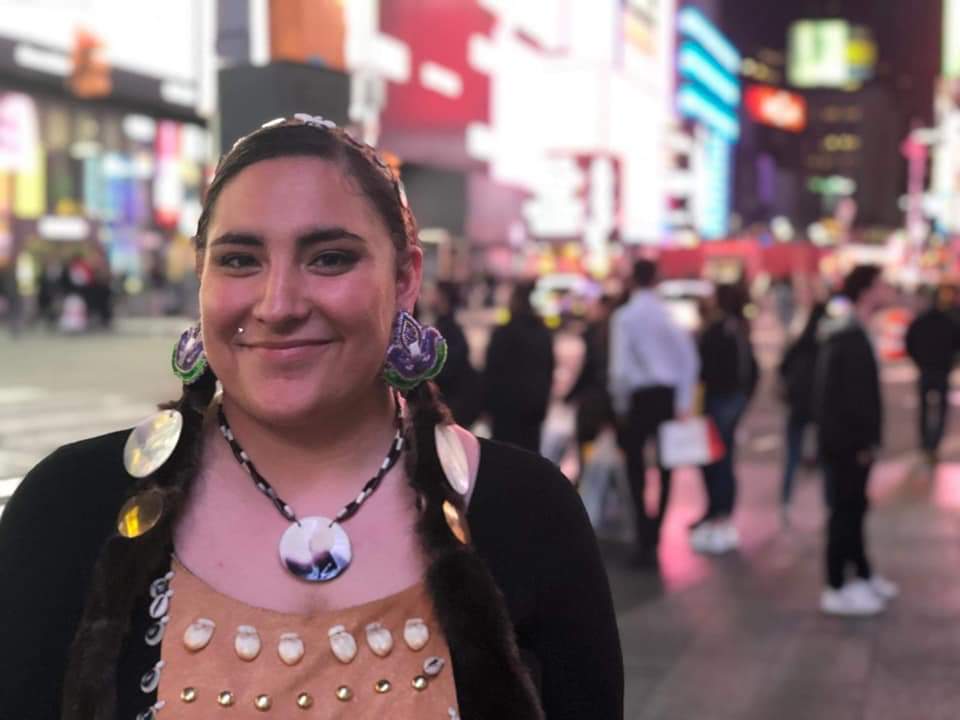
Oki Nitsiitapi Nidaniko Natoyiipoka Celina Gray, Nistoo Amskapipikuniaki and Métis.
Celina calls the Pacific Northwest home; being born in Montana and growing up in Washington State. Scholarly motivation for Celina is mused after her twins and baby with support by her fiancé; modeling relational responsibility to natural resources grounded in cultural knowledge provided by her father and others.
Celina completed her B.S. in Wildlife & Fisheries Biology at Salish Kootenai College on the Flathead Indian Reservation in Montana. She is currently studying mixed method research of cultural key stone species in the Human Dimensions Lab under Libby Metcalf within the UM Wildlife Biology Program. Celina is an active member of the Diversity, Equity & Inclusion Committee for the College of Forestry & Conservation, works as an administrative assistant for the Health Career Opportunity Program in the College of Health and is a UM Bridges Trainee, Sloan Scholar, American Indian Graduate Center Science Post-Graduate Fellow with additional support from the American Indian College Fund & Disney.
Brandon Kittson
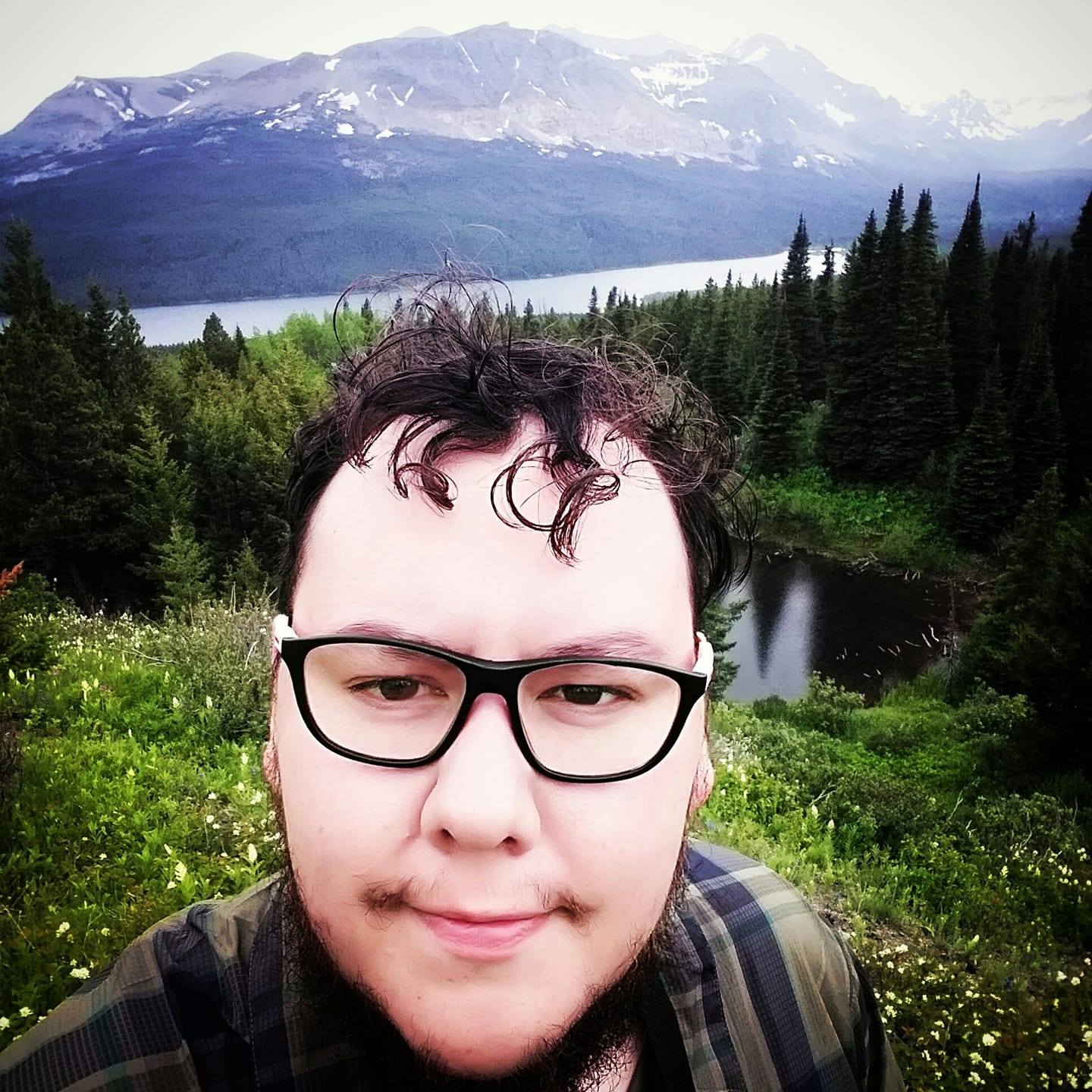
Wildlife biology and wildlife conservation have always been passions of mine. Growing up just outside of Glacier National Park and my Blackfeet cultural upbringing allowed me to develop a deep appreciation for the natural world. My research interests include road ecology, connectivity, and the reintroduction of extirpated species. Completing my Bachelor’s Degree in Wildlife and Fisheries at Salish Kootenai College in 2019 allowed me to work on a variety of interesting projects, including huckleberry phenology in Glacier National Park, Mexican Spotted Owls in New Mexico, ungulate crossing zones on Highway 89 on the Blackfeet Reservation, invasive plants in Costa Rica, and connectivity on U.S Highway 2. My current research is looking at Bison reintroduction on the Blackfeet reservation and their future distribution on the landscape, as well as looking at environmental factors that can influence that distribution.
Ren Freeman
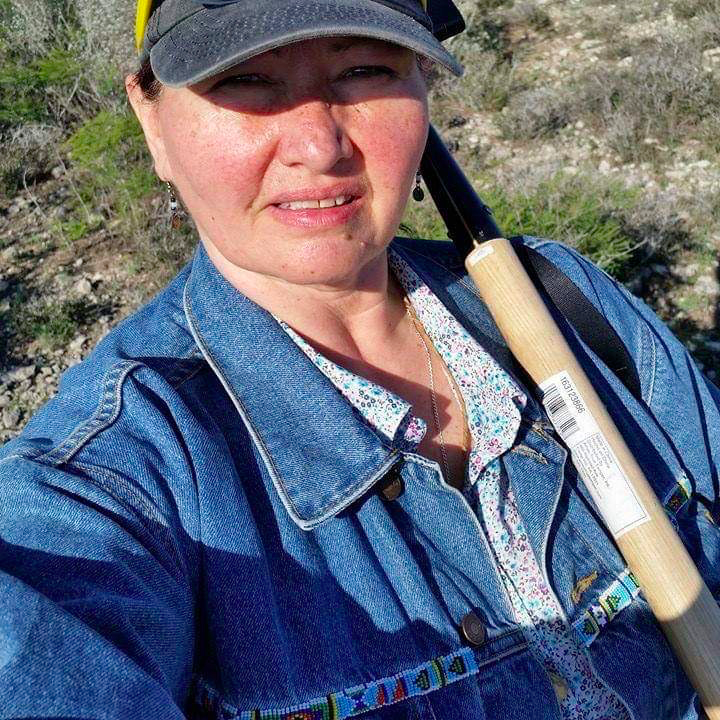
Tsaan be'tchu! Good day! I am Ren Freeman, an Eastern Shoshone woman from my ancestral homelands where the Wind River Indian Reservation exists in the state of Wyoming. I have two daughters, a son, and two grandsons, as well as a grand-fur-son, Foley the Beagle Boy. I am currently in the third year of seeking my doctorate degree in the programs of Cultural Heritage and Applied Anthropology, through the Anthropology department at the University of Montana (UM). My dissertation research entails Understanding how technologies utilized in landscape archaeology, such as GIS and LiDAR, impact Indigenous Knowledge Systems and Indigenous Traditional Ecological Knowledges and how these impacts are affecting tribal decision-making regarding tribal cultural heritage and natural resource management. When I have a moment for non-brain required work, I enjoy jigsaw puzzles, painting, walks in the woods, deep-sea diving, and fishing of all types, that assists me in completing a "life list" that has sent me to sites all over the world. Udah! Thank you.
Stephanie Barron
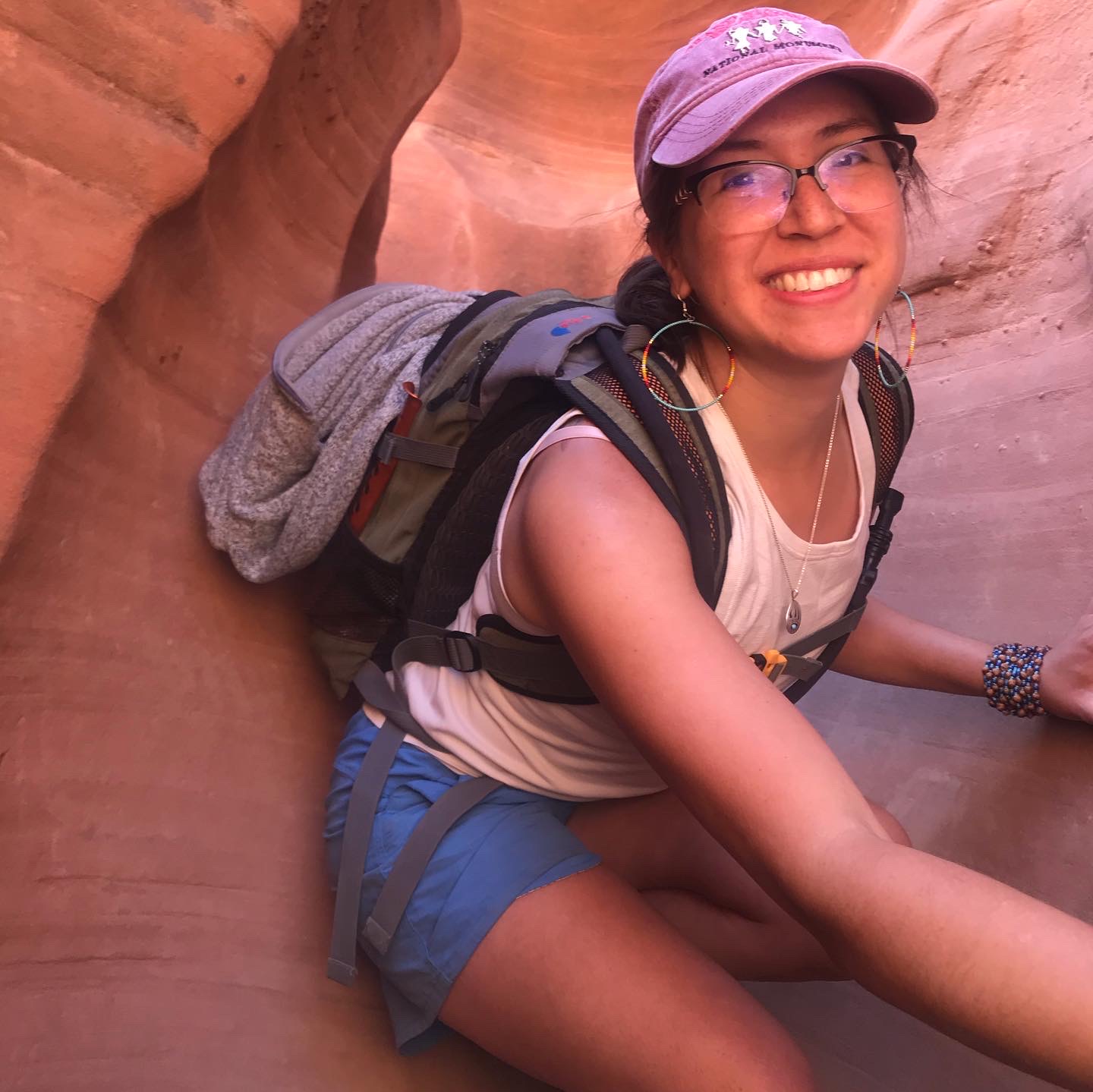
My name is Stephanie Barron (She/Hers) and I am of mixed Chiracahuan Apache, Indigenous Mexican, and German descent. I have lived all over the U.S but currently live in Missoula, Montana – which are the ancestorial territories of the Bitterroot Salish and Pend d’Orielle peoples. I graduated from Randolph College with a BA in Biology and Environmental Studies in 2014 and have spent the time since undergrad seizing every paid field opportunity I can. I have worked with and for federal, state, tribal, and non-profit entities in the fields of botany, forestry, fisheries, wildlife, and environmental education. Most recently I completed the University of Montana’s Natural Resource Conflict Resolution graduate certificate program; I am continuing my theoretical development by pursuing a Masters degree in Environmental Science at the University of Montana. By focusing on Traditional Ecological Knowledge, I hope to investigate the differences in risk perception between Indigenous and non-Indigenous peoples around carnivore --specifically mountain lion-- conflict and presence. Engaging communities in shifting perspectives and approaches to human-carnivore conflict in ways that facilitate greater relationship with these species and the land is what I am most passionate about. In my free time, I enjoy cooking and being outside as much as possible, sometimes with my own mini-carnivore Ziggy Starcat. Here is a picture of me in the desert of southern Utah on Traditional Ute and Souther Paiute land.
Landon Magee
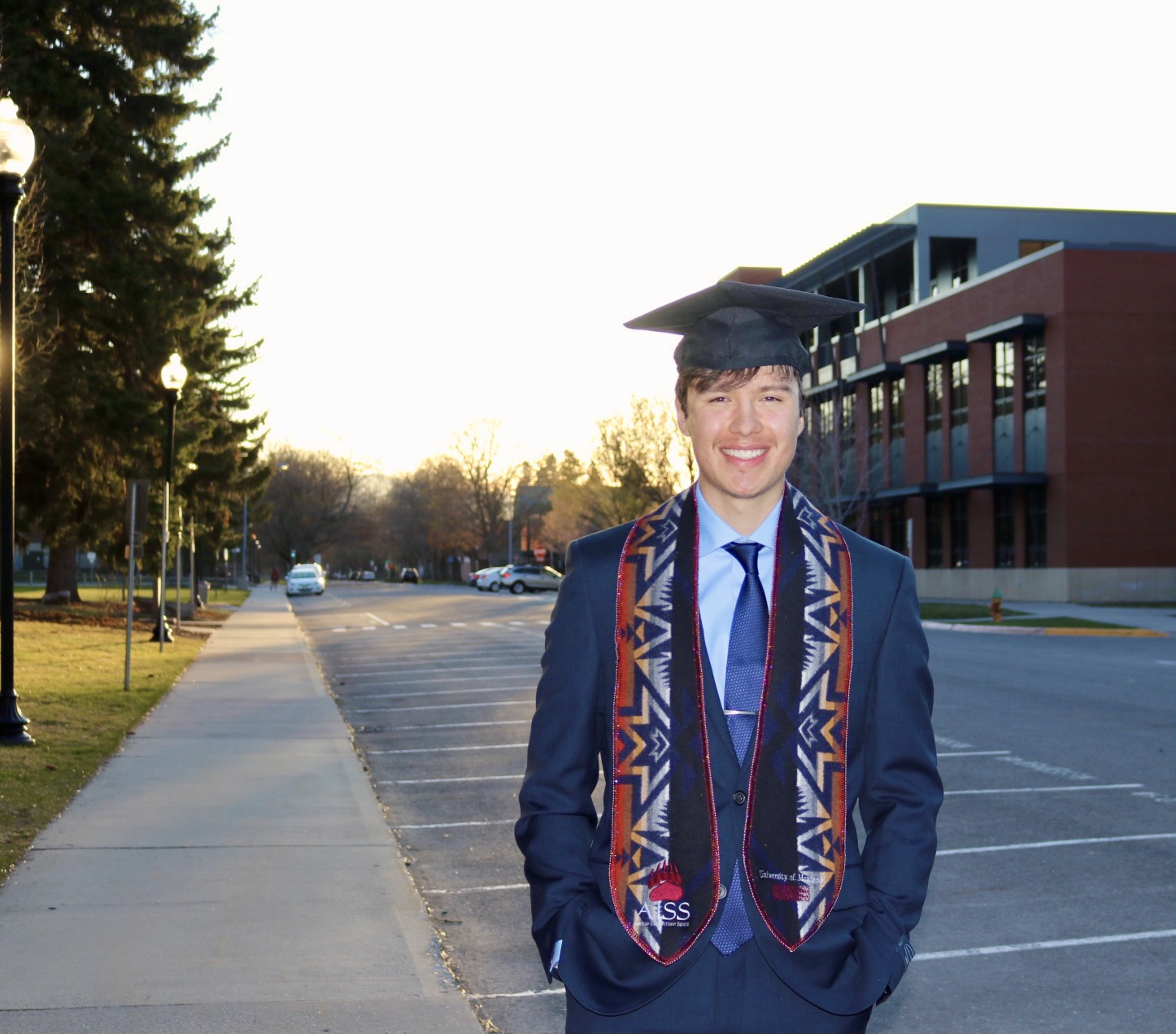
Oki Nistoo Nitankinoo (Hello my name is…) Landon Magee. I am a member of the Blackfeet Nation (Amskapi Piikuni). I grew up at the heart of the Blackfeet Reservation in Browning, Montana. I enjoy hunting and fishing with my dad, as well as going out and experiencing the amazing landscape the Reservation, and other surrounding areas, has to offer. As an avid outdoorsman, I was propelled into the Wildlife Biology field. I just recently graduated from the University of Montana with my B.S. in Wildlife Biology, but I’m continuing my education and pursuing my M.S. in the same field. I am currently working on my Master’s thesis to estimate the abundance and other demographic features of moose on the Blackfeet Reservation using trail cameras. During the summers, I work for the Blackfeet Fish and Wildlife Department for their Threatened and Endangered Species Program, which often has us dealing with human-bear conflicts.
Haley K. Omeasoo
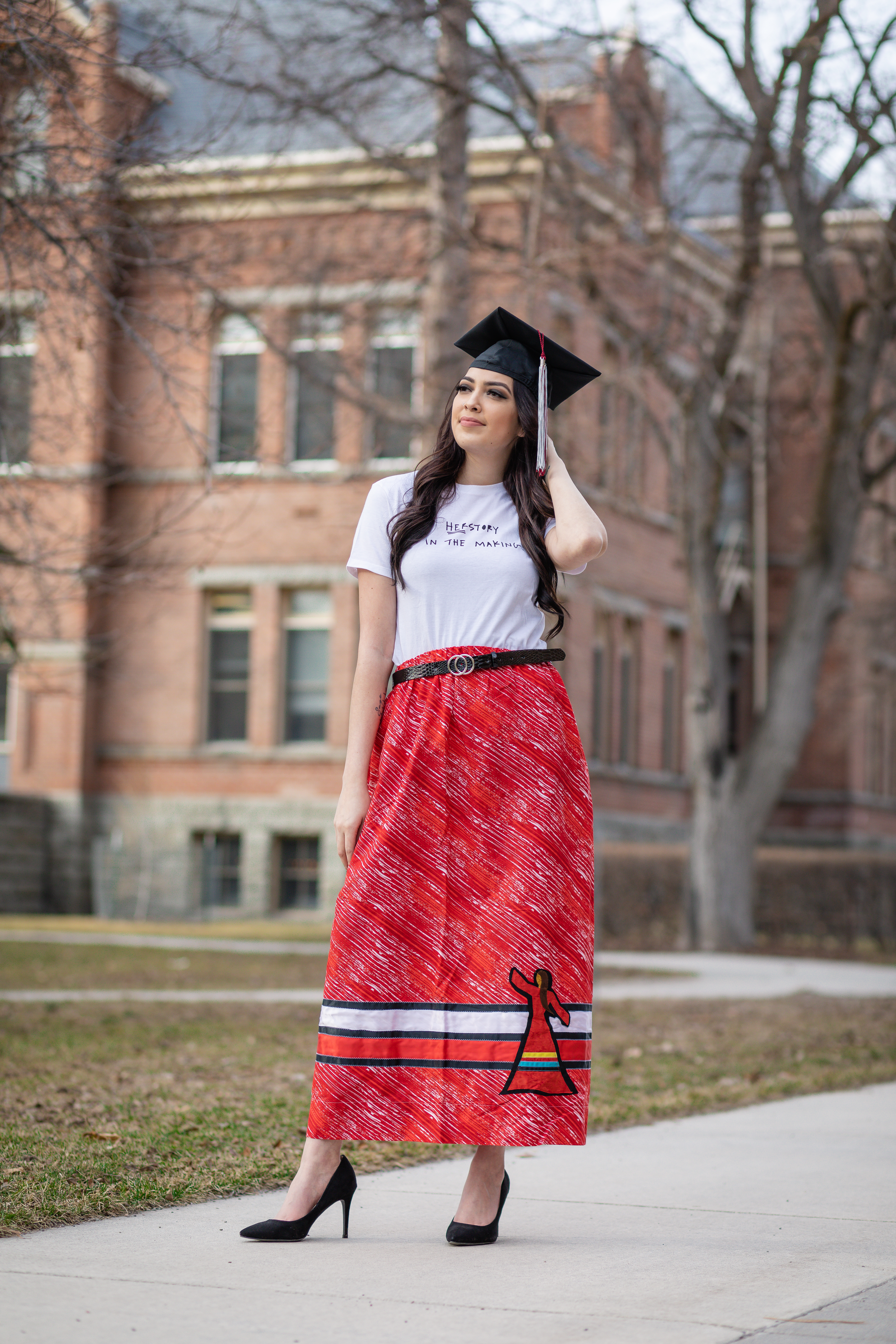
Okii Niistoo Nitaanikoo (Hello my name is) Haley Omeasoo, and I am a Blackfeet/Hopi, graduate student from the Blackfeet Reservation. I received my undergraduate degrees at UM in Forensic Anthropology (B.A.), Human Biology (B.S.), and a Certificate in Forensic Science. I am currently in the Master's program in Forensic Anthropology, doing my thesis project on skeletal markers (fracture patterns) associated with Intimate Partner Violence involving Indigenous people. I plan to further my research education to benefit Indigenous people in areas such as the MMIP epidemic, repatriation of Native American remains, identifying Residential School remains, and any other issues where forensic anthropology may come into play.
When I'm not working on school stuff, I love spending time with my husband, our two sons, and our dog RiRi. I also enjoy traveling, fitness, and true crime podcasts."
Sidney Fellows
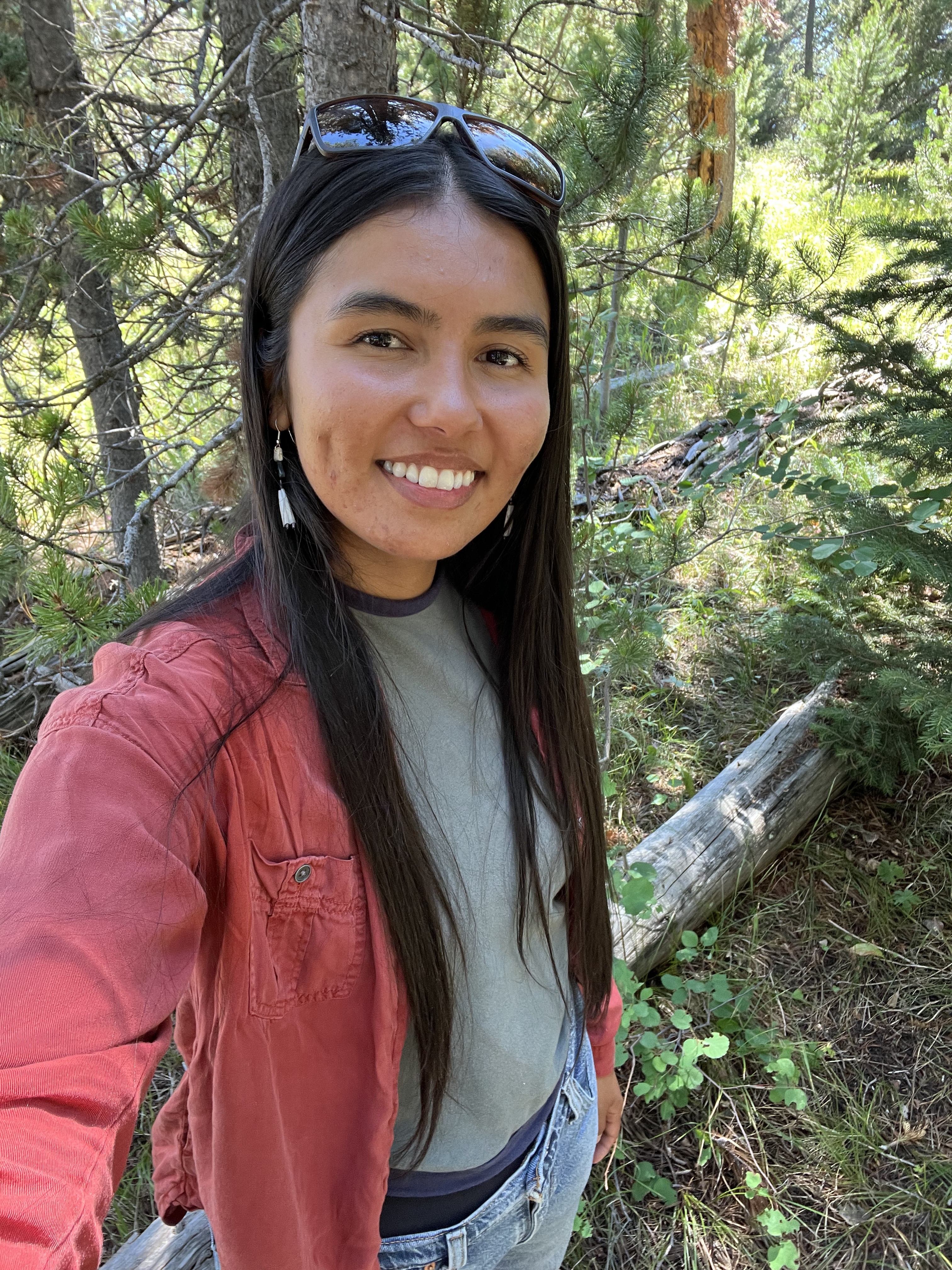
Hello! My name is Sidney Upsis Fellows. My passion for increasing tribal access to healthy, cultural foods and my commitment to being a good relative are rooted in my communities and ancestral homelands of the Shoshone-Bannock and Chippewa-Cree Tribes. I was born and raised on the Shoshone-Bannock Reservation in southeast Idaho. Five years ago, through professional and academic experiences, I began my studies in natural history, ethnobotany, and Indigenous food sovereignty. In 2022, I received a B.A. in biology and am now in the Environmental Studies M.S. program with a focus in sustainable food and farms and Indigenous knowledge. My current research interests focus on Indigenous food sovereignty, biodiversity, and the impacts of mining on land, water, and people at the Fort Hall reservation. I am grateful to be deepening my understanding of my role as a community member and how to use my education to support the health and wellbeing of land and people through food and cultural practice. A photo of me in the mountainous terrain of my ancestral homelands!
